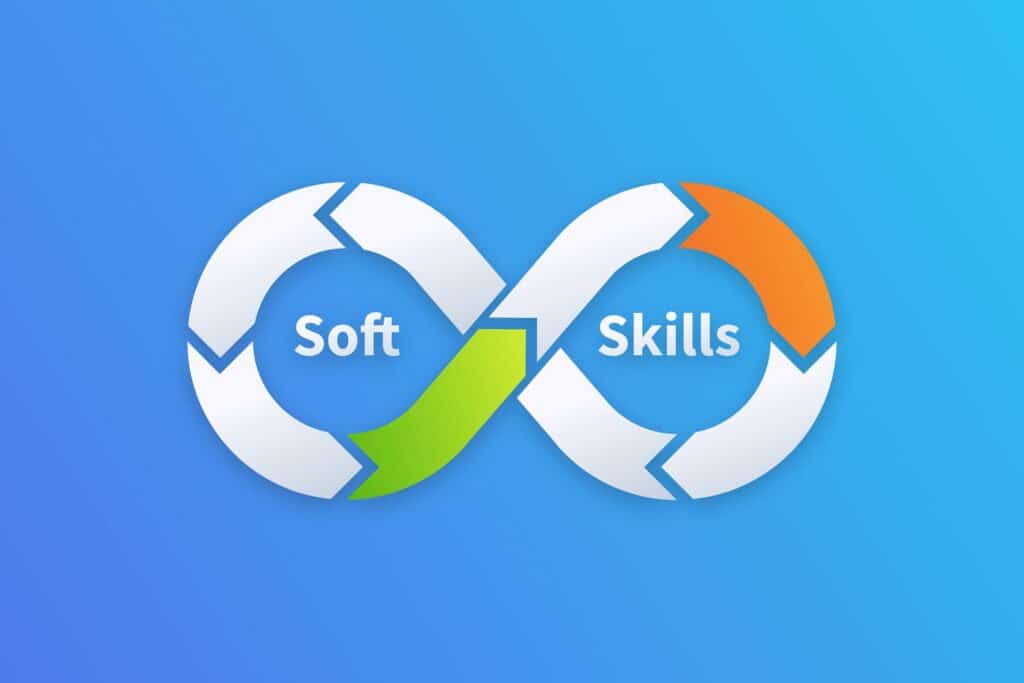International education programs play an essential role in shaping a student’s global perspective and cross-cultural competence. Program coordinators are at the forefront of these programs, responsible for ensuring that educational and cultural exchange programs are efficiently executed. In this article, we will explore the key program coordinator skills required in international education.
Understanding the Role of a Program Coordinator in International Education
A program coordinator typically acts as a liaison between students, academic institutions, and partner organizations. They are responsible for ensuring that educational programs are run smoothly, academic policies are adhered to, and that students have a valuable learning experience. To perform these duties effectively, program coordinators require a set of essential skills that enable them to interact with different stakeholders, manage project deadlines, and resolve conflicts that may arise.
Program coordinators are responsible for overseeing a wide range of tasks that are essential to the success of international education programs. One of their key responsibilities is to develop and design educational programs that align with the academic institution’s goals and objectives. This involves collaborating with different stakeholders to identify the needs of the students and the institution, and designing programs that meet those needs.
In addition to designing educational programs, program coordinators also collaborate with partner organizations, including universities, government agencies, and non-profit organizations. These partnerships are essential for promoting the educational programs and attracting international students. Program coordinators work closely with these partners to develop marketing strategies and to identify potential students who would benefit from the educational programs.
Recruiting and selecting students is another important responsibility of program coordinators. They are responsible for identifying and selecting students based on academic qualifications and personal attributes. This involves reviewing applications, conducting interviews, and evaluating the suitability of the candidates for the program. Once the students are selected, program coordinators are responsible for preparing them for the program by providing them with necessary information, documentation, and orientation.
Ensuring that students comply with academic policies, rules, and regulations of the host institution is another key responsibility of program coordinators. They are responsible for ensuring that students are aware of the academic policies and regulations of the host institution and that they comply with them throughout the program. Program coordinators also provide support to students who may face academic or personal challenges during the program.
Conducting program evaluations and assessments to measure program outcomes and effectiveness is another important responsibility of program coordinators. They are responsible for collecting and analyzing data to evaluate the effectiveness of the educational programs and to identify areas for improvement. This involves conducting surveys, focus groups, and other forms of data collection to measure program outcomes and to identify areas for improvement.
The Importance of Program Coordinators in International Education
Program coordinators play a pivotal role in ensuring that international education programs are successful in fostering cross-cultural understanding and academic excellence. They are responsible for building relationships and networks that enable the institutions to promote their programs and attract international students. By facilitating cross-cultural interactions between students, program coordinators create opportunities for mutual learning and exchange of ideas.
International education programs are becoming increasingly important in today’s globalized world. These programs provide students with the opportunity to gain valuable international experience and to develop cross-cultural competencies that are essential for success in today’s interconnected world. Program coordinators play a critical role in ensuring the success of these programs by designing and implementing educational programs that meet the needs of the students and the academic institution, and by providing support to students throughout the program.
In conclusion, program coordinators are essential to the success of international education programs. They are responsible for overseeing a wide range of tasks that are essential to the success of the program, including designing educational programs, collaborating with partner organizations, recruiting and selecting students, ensuring compliance with academic policies and regulations, and conducting program evaluations and assessments. By facilitating cross-cultural interactions between students, program coordinators create opportunities for mutual learning and exchange of ideas, and help to foster cross-cultural understanding and academic excellence.
Essential Soft Skills for Program Coordinators
Effective program coordinators require a unique set of soft skills, including communication, adaptability, problem-solving, time management, leadership, and teamwork. Below, we look at these soft skills in detail.

Communication and Interpersonal Skills
Program coordinators must have excellent communication skills to facilitate effective interaction with different stakeholders, including students, academic administrators, and partner organizations. Effective communication enables program coordinators to articulate the program’s objectives, requirements, and benefits clearly. Additionally, strong interpersonal skills are necessary for building and maintaining relationships across diverse cultures and contexts.
Program coordinators must also have the ability to communicate effectively in writing. Clear and concise written communication is necessary for creating program materials, such as brochures, program handbooks, and promotional materials. Effective written communication also helps program coordinators keep stakeholders informed of program updates, changes, and deadlines.
Adaptability and Flexibility
International education programs can be challenging to organize, and program coordinators must be adaptable and flexible to solve problems and manage risks. Program coordinators must anticipate potential problems and have contingency plans in place to manage unexpected events on the ground. Adaptability and flexibility are essential when dealing with unpredictable circumstances such as student visa applications, health emergencies, or weather-related disruptions.
Program coordinators must also be culturally sensitive and aware of the unique challenges that students may face when studying abroad. They must be able to adapt program structures and activities to meet the diverse needs of students from different cultural backgrounds.
Problem Solving and Critical Thinking
Program coordinators must possess strong problem-solving and critical thinking abilities. They need to identify potential issues and develop solutions quickly that efficiently address them. Critical thinking helps program coordinators to assess complex situations and determine the most effective course of action.
Program coordinators must also be able to analyze data and evaluate program outcomes to identify areas for improvement. This requires the ability to think critically and make data-driven decisions that enhance program effectiveness.
Time Management and Organization
International education programs often have strict timelines and deadlines that require effective time management and organization skills. Program coordinators must prioritize tasks, manage resources, and ensure that project milestones are met on time. Strong time management and organization skills are essential to avoid costly delays that can negatively impact the program’s success.
Effective time management also requires the ability to delegate tasks and manage project teams. Program coordinators must be able to assign tasks to team members based on their strengths and skillsets, and monitor their progress to ensure that deadlines are met.
Leadership and Teamwork
Program coordinators require strong leadership and teamwork capabilities to manage project teams, build relationships, and ensure effective communication. They must be able to motivate team members, delegate tasks, and monitor performance throughout the program cycle.
Effective leadership also requires the ability to build strong relationships with partner organizations and academic institutions. Program coordinators must be able to collaborate with other stakeholders to ensure that the program meets the needs of all parties involved.
In conclusion, effective program coordinators require a unique set of soft skills that enable them to manage international education programs successfully. These soft skills include communication, adaptability, problem-solving, time management, leadership, and teamwork. Program coordinators who possess these skills can create and manage programs that provide students with valuable educational experiences while building strong relationships with partner organizations and academic institutions.
Technical Skills and Knowledge for Program Coordinators
Program coordinators play a critical role in managing international education programs. They are responsible for ensuring that the programs run smoothly and that students have a positive experience. To achieve this, program coordinators need a range of technical skills and knowledge. While the specific skills required may vary depending on the program managed, some of the critical skills include:

Familiarity with International Education Policies and Standards
Program coordinators must be familiar with international education policies and standards to ensure that their programs comply with legal, regulatory, or ethical guidelines. This knowledge includes understanding academic policies, visa requirements, and student health and safety standards. For instance, program coordinators must ensure that students have the necessary medical insurance coverage and that they are aware of the local emergency services.
Moreover, program coordinators must be able to navigate the complex web of regulations and policies that govern international education. This includes understanding the different accreditation systems used in different countries and the requirements for transferring credits between institutions.
Proficiency in Multiple Languages
Given that international education programs bring together students from different cultural and linguistic backgrounds, program coordinators must possess proficiency in multiple languages. Being multilingual enables program coordinators to communicate effectively with a diverse range of audiences. It also helps them to understand the cultural nuances that may impact student experiences.
Moreover, being multilingual can help program coordinators to build relationships with local partners and stakeholders. For instance, if a program coordinator is managing a study abroad program in Japan, having proficiency in Japanese can help them to communicate effectively with the local university and navigate the local culture.
Budgeting and Financial Management
Effective budgeting and financial management skills are essential for program coordinators. Budgeting is required to estimate the program’s total cost, while financial management enables program coordinators to monitor expenses against the allocated budget. This includes managing expenses such as airfare, accommodation, meals, and transportation.
Moreover, program coordinators must be able to identify potential cost savings and negotiate with vendors to get the best value for money. This requires strong analytical skills and attention to detail.
Knowledge of Educational Technologies and Tools
Program coordinators should be familiar with educational technologies that can enhance learning experiences. This includes online learning platforms, mobile apps, and virtual classrooms. By leveraging technology, program coordinators can facilitate flexible learning experiences and improve student engagement.
Moreover, program coordinators must be able to troubleshoot technical issues that may arise during the program. This requires a basic understanding of the underlying technology and the ability to work with IT support teams to resolve any issues.
Understanding of Cultural Differences and Sensitivity
International education programs are meant to foster cross-cultural understanding and promote global harmony. Program coordinators must understand and appreciate cultural differences and be sensitive to cultural norms when interacting with different stakeholders.
For instance, program coordinators must be aware of the different communication styles used in different cultures. In some cultures, direct communication is valued, while in others, indirect communication is preferred. Similarly, program coordinators must be aware of the different customs and etiquette that may impact student experiences.
Moreover, program coordinators must be able to support students who may experience culture shock or other challenges related to adjusting to a new culture. This requires empathy and a willingness to listen and provide support.
In Conclusion
Program coordinators play a crucial role in international education, by ensuring that programs are efficiently executed and academic excellence is maintained. To be an effective program coordinator, one requires a unique set of technical and soft skills that enables them to manage programs and engage with different stakeholders successfully.


